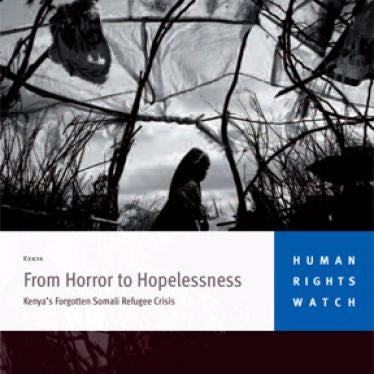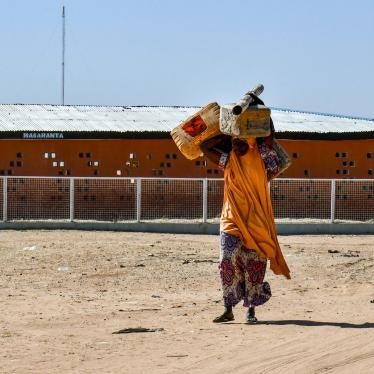Sitting in the world's largest refugee camp, 17-year-old ‘Amina' struggles to meet my eyes as she tells me her story.
Fleeing war-torn Somalia early last year, she managed to slip across Kenya's officially closed border. Like hundreds, if not thousands, of other Somali refugees, Amina and 20 others were picked up by Kenyan police on the edge of the Dadaab camp. The police demanded bribes, threatened to deport them and took them to a police station in the camp.
Amina told me of a ten-day ordeal before refugees in the camp paid $300 (Sh24,000) to secure her and the others' release from the station: "On the eighth evening, I left the cell to go the toilet. Two policemen forced told me to go into a room and lie down. One held down my arms and the other raped me. I was so scared I couldn't even shout, but when the second man tried, I screamed... When they took me back the others asked me where I had been but I could not tell them. I was too ashamed. This is the first time I have talked about it to anyone."
Amina is one of at least 60,000 refugees who fled Somalia and sought refuge in camps surrounding Dadaab. Corrupt Kenyan police unlawfully force back to Somalia those who cannot meet their bribe demands, in violation of international law. Others, like Amina, are held and mistreated in appalling conditions in the camps or in nearby towns until bribes are paid. Those who survive Somali militias and Kenyan police find little refuge when they reach the camps, though.
Camps full
Designed for 90,000 refugees, the Dadaab camps - Ifo, Hagadera and Dagahaley - now shelter over 260,000 and the number is expected to reach at least 300,000 by the end of the year. Despite the closed border, between five and ten thousand refugees are expected to make the crossing. In a worst-case scenario, 200,000 more could arrive in a very short time.
Since August last year, when the camps were officially declared full, over 35,000 new arrivals have received no materials or land for shelter and have been forced to sleep under open skies, or, if lucky, to squat on other refugees' plots and in cramped tents or huts. Acute malnutrition stands at 13 per cent, maybe higher. Tens of thousands struggle to get access to inadequate water supplies. Sanitation conditions are appalling. Health teams cannot meet growing medical needs.
Cholera is already present, and a serious outbreak remains a real risk in Dadaab. Ever-increasing overcrowding and poor sanitation and waste disposal, as well as the lack of investment in hygiene promotion, are only exacerbating this risk. In short, a humanitarian emergency will unfold this year in Dadaab unless urgent action is taken.
What can be done to resolve this crisis? First, the Kenyan government should add to its recent commitment to open a fourth camp for 50,000 refugees. That step will begin to decongest the old camps but is not sufficient by itself to solve the problem of overcrowding and the challenge of sheltering new arrivals this year.
Kenya urgently needs to find land for an additional 100,000 refugees. To help reach an agreement for more land as soon as possible, United Nations development and environmental agencies should step in to address long-standing concerns of Kenyans living near the camps. Second, donor governments, including the United States and European States, should increase funding to agencies working in the camps to ensure that Dadaab's refugees, including Amina, receive the help and protection they desperately need.
Orderly Admission
Finally, Kenya should work with UNHCR to ensure orderly admission and screening of asylum seekers at the border. Kenya may have legitimate security concerns over Somalia, but its decision to close its border - which also led the UN refugee agency to close a transit centre in Liboi where refugees were registered and given health checks - meets neither its security needs nor its obligation to protect civilians fleeing a war zone.
But before any of these steps, Kenya should rein in its corrupt and abusive police and keep them from preying on refugees like Amina.








